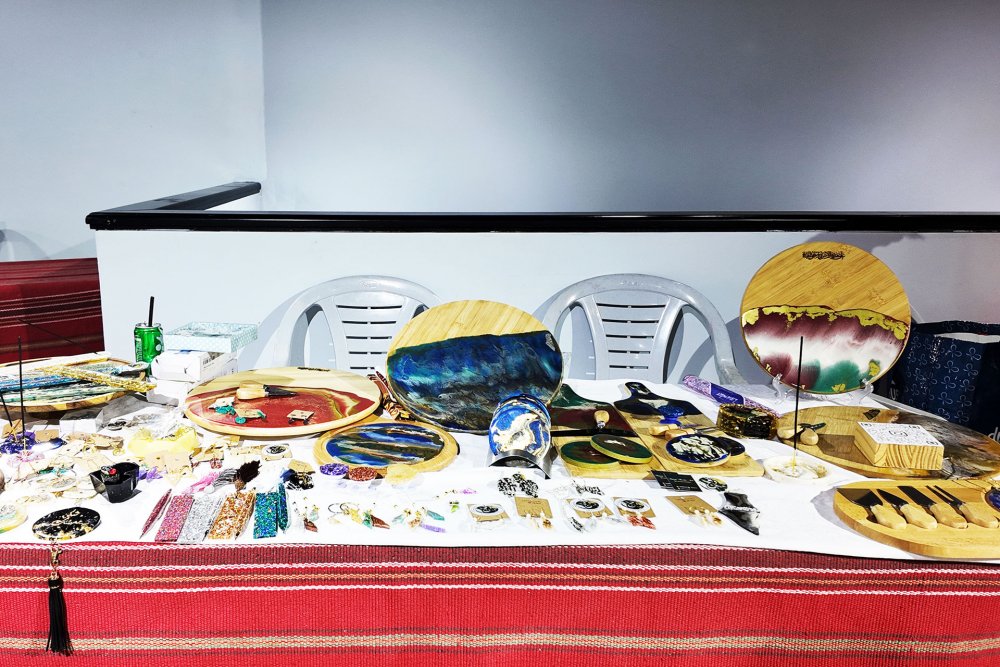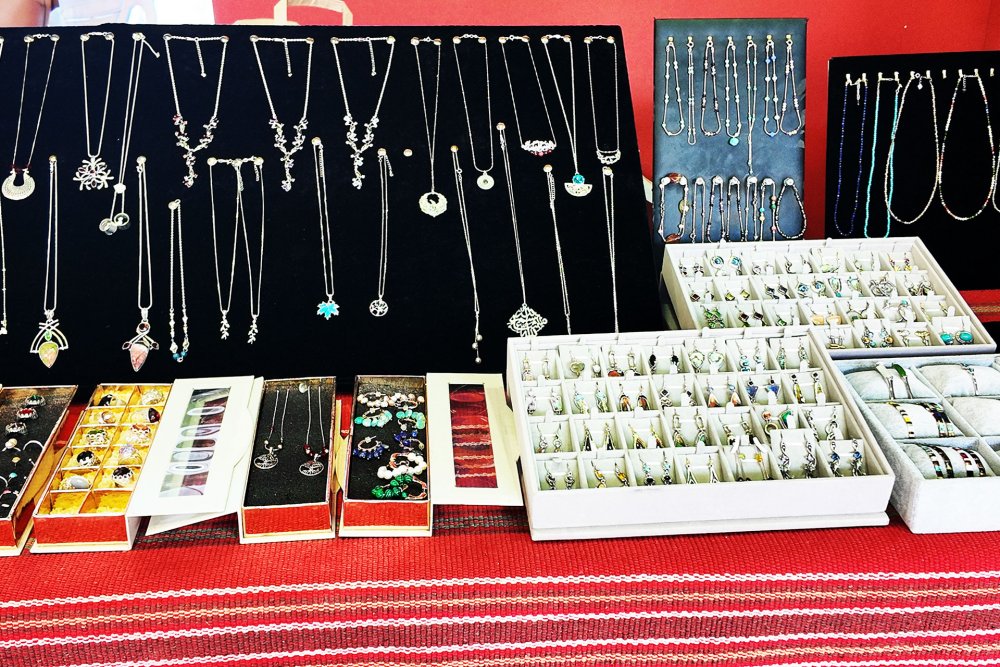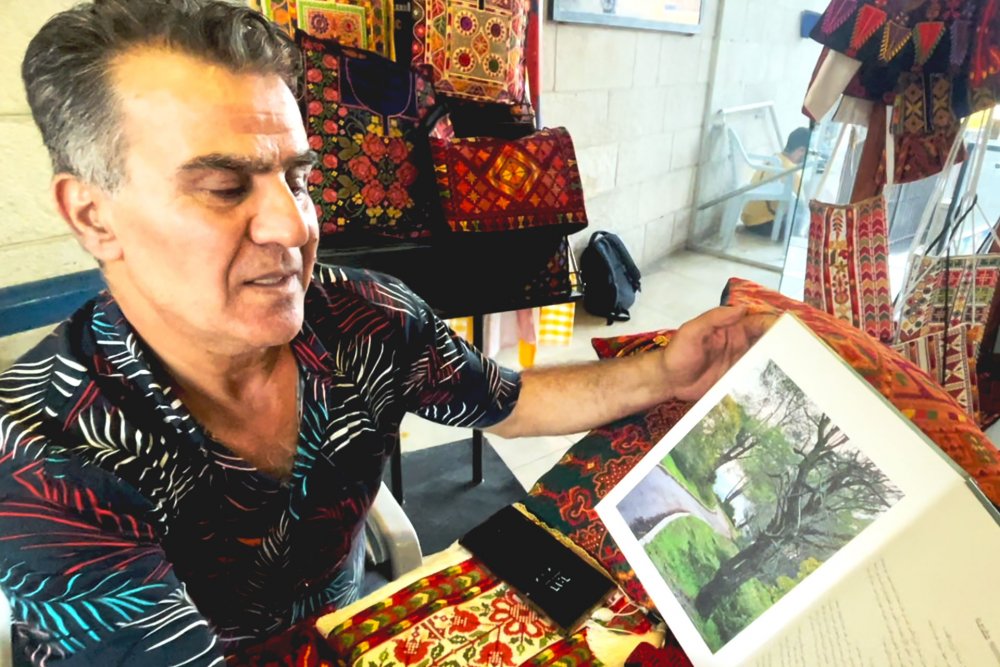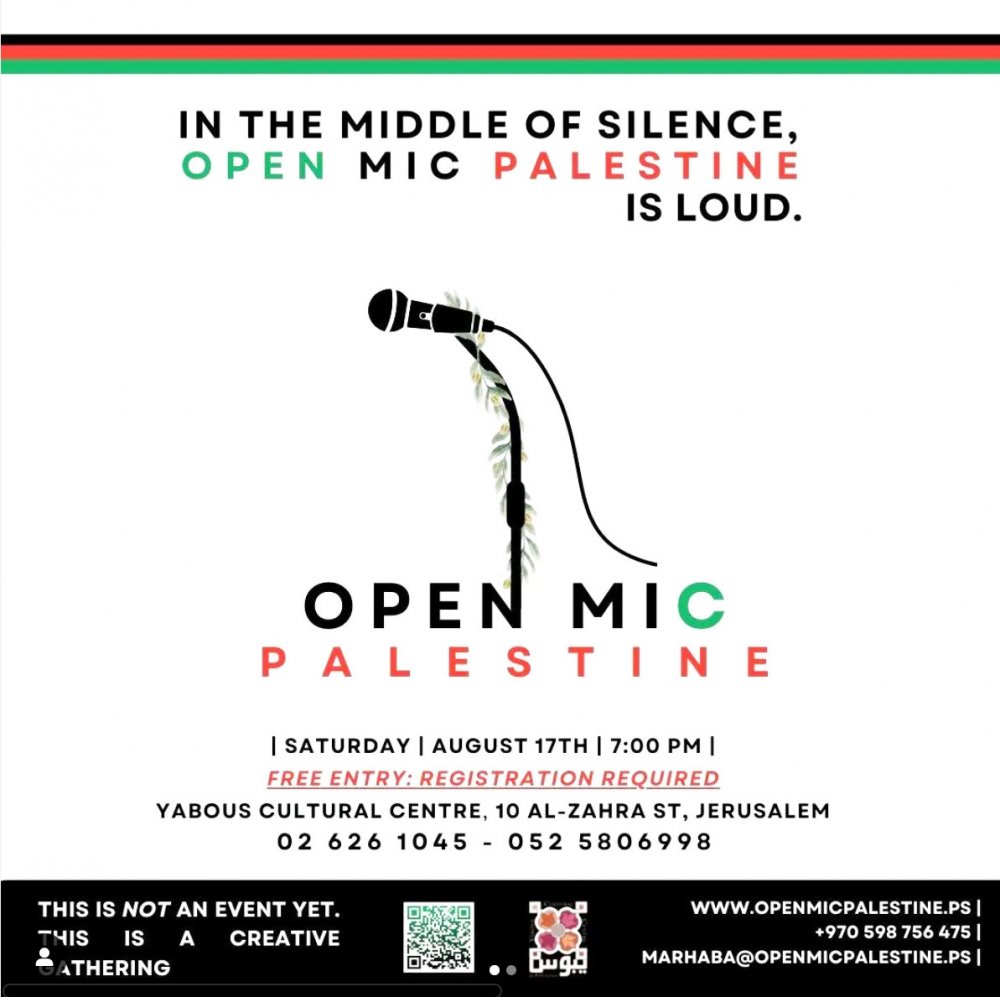Yabous Cultural Centre Hosts a Festival
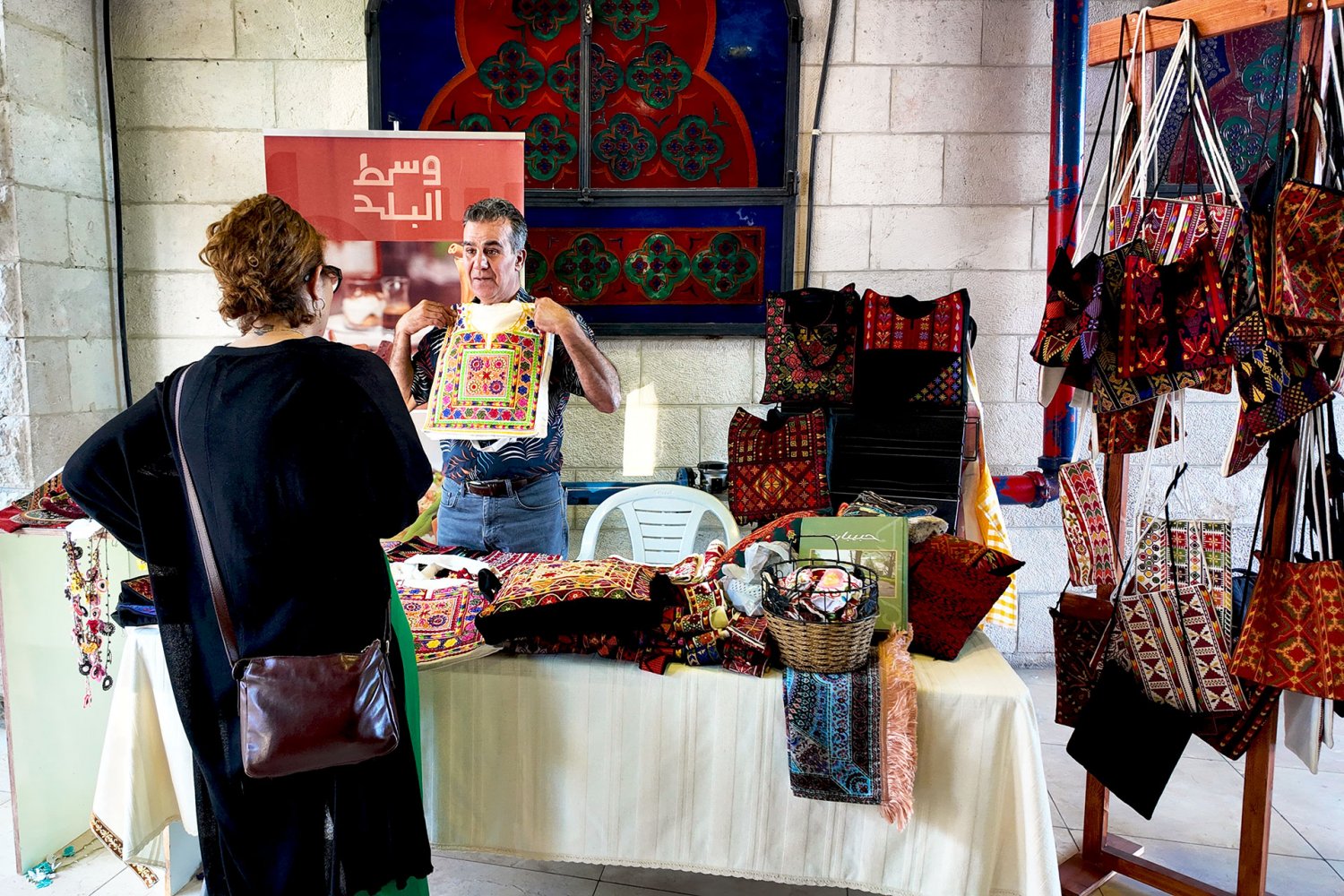
Credit:
Mays Shkerat for Jerusalem Story
Arts, Crafts, and Poetry in Jerusalem’s Yabous Cultural Centre
Despite the horrendous and alarmingly quiet Jerusalem, the Yabous Cultural Centre remains adamant about providing a space for exhibiting arts and crafts. On Saturday, August 17, 2024, Jerusalem Story team members visited a bazaar and attended a follow-on event at the center.
This is not the first time the Yabous Cultural Centre has organized this festival: “Souq al-Quds [The Jerusalem Market] had been previously organized at different times in the past few years,”1 says Nadeem Mazen, projects coordinator at Yabous. He adds:
The bazaar was held weekly on Saturdays and Thursdays. It was part of the Jerusalem Folk Arts Festival, an idea that resonated from the local Jerusalemites as well as popular markets around the world. The idea is to have this as a stable place where the artists and craftspeople have a consistent place to sit, display, and sell their handmade products.
Artists’ Perspectives
Nehaya Helo Abu Khater from Jerusalem’s Beit Hanina neighborhood is one of the artists displaying her work at Souq al-Quds. She expresses that Jerusalem is the heart and center of the jewelry she creates: “My family (and even myself) were completely surprised that I went ahead and put my artistic crafts out there, but it’s become quite a passion of mine. I love designing unique jewelry; I naturally pay attention to the little details, and each item tells its own story.”2
Issa Qawasmi from the Palestinian neighborhood of Wadi al-Joz had a colorful corner at the entrance of the bazaar. He has a clothing shop in Jerusalem, but also makes use of the bazaar to sell purses, bags, shawls, pillowcases, and belts that are all made with Palestinian designs and inspired by Palestinian tatreez.
When Issa speaks, it’s soon clear he’s a writer and novelist. Besides the clothing items, he also displayed a self-published hardcover coffee-table book, full of photos of Jerusalem. “The book is a collaboration by me and my brother, Shihab. I wrote the scripts and took the photos of Jerusalem, and he created identical drawings of those photos,” he says.3 “I realize most people don’t really read, so I decided to focus on visual publications to capture their attention. Basically, the stories would speak for themselves through photography.”
Born in Haret al-Sharaf (today part of the Jewish Quarter of the Old City of Jerusalem) in 1962, Issa and his family were expelled from their home following the 1967 War, when he was five years old. “Over the course of history, much has been destroyed and removed here. Jerusalem has been through 28 different civilizations, leaving many leftovers, but almost all of it is gone. What remains are the people—the original living and breathing people of Jerusalem,” he says.
Open Mic Night
Going back to Nadeem Mazen, it is worth noting that he himself is a contemporary artist and a familiar face at Yabous: He started as a volunteer in 2007 and was formally employed in 2020. “Yabous is my second home,” he says. Nadeem finds it crucial to encourage Jerusalemites to attend cultural events. One way that Yabous is doing so this year is by combining events. For example, right after the artists removed their products from the bazaar, at 7:00 p.m., an open mic event began. This was the first time that Jerusalem hosted an open mic event, which Open Mic Palestine organized.
The Open Mic Palestine team defines its platform as a vibrant and inclusive space that “aims to gather the diverse voices of Palestinians and non-Palestinians alike, from all walks of creativity and life.”4 They use the power of spoken word, poetry, song writing, music, stand-up comedy, storytelling, and art to empower people to express themselves freely through open mic performances. Since they launched in 2023, the team has organized 20 events in different Palestinian cities, but August 2024 was the first time they had organized an event in Jerusalem.
Founder and producer of Open Mic Palestine, Polish-born and UK-educated Konrad Suder Chatterjee, was present at the event, which around 30 people attended (both Palestinian and non-Palestinian). The performers shared the safe and empowering space with much humor, openness, and an overall dynamic and engaging spirit.
However, it was impossible to ignore the fact that all attendees and performers were overwhelmed by the trauma of the ongoing war on Gaza. This, evidently, has seeped into the psyche of all people: Different poems were shared in a futile plea to make sense of the nonsensical ramifications of war. For privacy (and perhaps self-consciousness) concerns, many artists preferred not to have their poems recorded or their photos shared, but, by and large, it was impossible to escape the deep emotions (including tears) that were stirred by the words expressed. Many of the poems were vivid and personal accounts of the horrid idea of being handed one’s baby in a trash bag, as a “victim of genocide,” or of the horrendous words one performer could not get over after hearing that her aunt and precious grandmother had been killed in Gaza.
Leaving Yabous at 9:30 p.m. on a simple summer night, the audience—some of whom had not previously met—shared that this experience was more of a much-needed “collective therapy.”
Amidst the shared laughter, sighs, tears, and state of shock and horror at the 2023–24 Gaza War, it is evident that convening as a community has the potential to offer a drop of therapeutic release. Whether through Souq al-Quds, which gives an opportunity for craftspeople, artists, and small business owners to display their handmade products, or Open Mic Palestine events, which provide a safe space for pent-up creative and emotional expression, such activities are much needed for Jerusalemites, especially in these days.
Notes
Nadeem Mazen, interview by the author, August 17, 2024. All subsequent quotes from Mazen are from this interview.
Nehaya Helo Abu Khater, interview by the author, August 17, 2024. All subsequent quotes from Abu Khater are from this interview.
Issa Qawasmi, interview by the author, August 17, 2024. All subsequent quotes from Qawasmi are from this interview.
“Power of Creative Expression,” accessed August 15, 2024, Open Mic Palestine.

